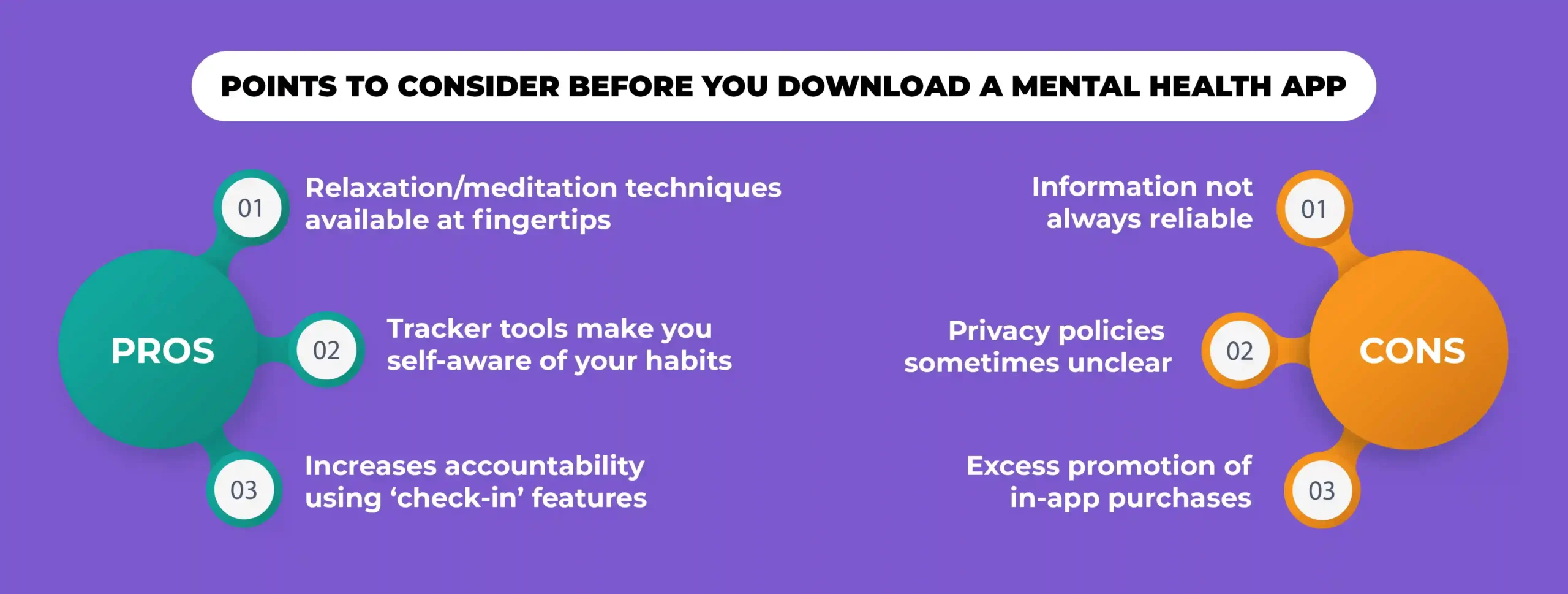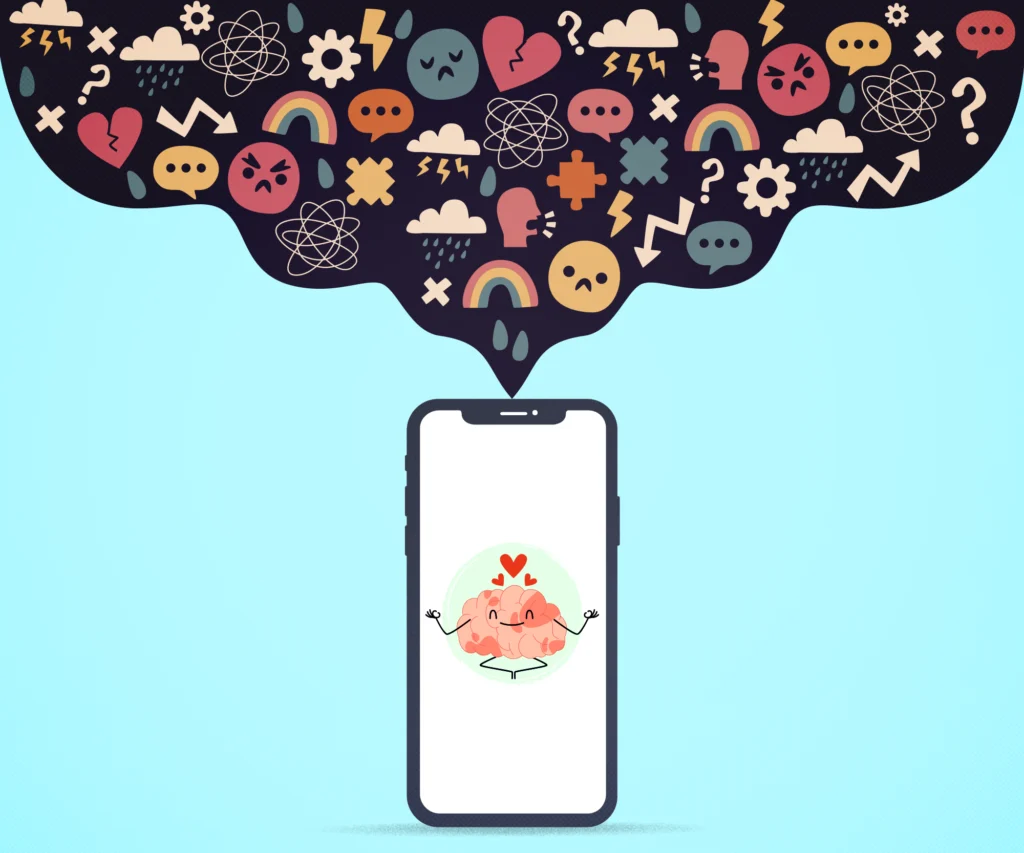Today, we’re making huge strides in destigmatising mental illnesses. People are actively working on making mental health a priority. Moreover, it’s becoming less taboo to talk openly about therapy. Everything points towards the fact that we’re prioritising self-care, which is incredible! However, with all these recent developments, we still sometimes fail to do the bare minimum. Not everyone has the time and money to spend on a wellness retreat or therapy. Technology comes to our aid here. We have found some great apps that would be of great help. These apps help users keep in touch with mental health practices in the comfort of their homes. Although these apps cannot substitute professional consultation or diagnosis, they can lend a helping hand from time to time. Here’s a genre-wise review of some mental health apps you can find on the internet:
Mental health apps personalised for anxiety management
A significant part of anxiety management requires structured guidance. The following apps seek to do that for the users.
1. Calm and Headspace
These are the two most prominent apps in this field. Both of them offer guided meditations, breathing techniques, and mindfulness activities. To be specific, Headspace offers certain guided plans. It helps with targeted scenarios to help someone in cases of immediate anxiety. Calm has professionals who can listen to the users and share valuable insights across disciplines. The two apps also offer soothing stories and white noise to help those with trouble sleeping.
2. Happify
This app “gamifies” the experience of bettering one’s mental health. Here, the user can participate in quizzes, activities and fun games. It forms a structured programme to combat intrusive thoughts, manage situational stress, learn to parent, and so on. The user also receives helpful tips to implement in daily life. However, this app requires users to sign up and provide specific anonymous details (such as age and ethnicity to gauge their general mental state). Whether to make their progress remain private or share and engage with a larger community is a choice left entirely to the user.
3. Evolve
This app is designed specifically for the LGBTQIA+ community and provides a safe space for expression and access to healthcare. There are a variety of therapies designed to address numerous challenges that the queer community faces, like transphobia, exploring gender and sexuality, and understanding how to manage gender dysphoria. In addition, the app provides advice on financial management and relationships, along with breathing exercises, journaling tips, and affirmations. These are areas often left behind by other apps. However, much of the content is accessible only after certain payments.

Mental health apps personalised for mood management
These apps focus on how exactly a user feels at the moment and provide methods to identify the emotions. For example, the user can fill up self-description boxes or select from the emojis that suit their current mood. In addition, the user can access the ‘mood history’, which helps them recognise mood patterns and any predictable triggers.
1. Mood Patterns
This app runs without internet permissions, and the user must enter a PIN and other personal details to access their profile. The ‘survey’ feature on this app asks you to enter your emotions or events along with the time of occurrence to know whether it is possibly a memory bias or a more accurate real-time note. This feature helps you identify what was happening when you felt this emotion to track any patterns or triggers. You can store all your information like sick days, travel days, long-term projects or any other event. The primary goal of Mood Patterns is to introduce you to the nuances and reflections of your mood patterns to grasp them better.
2. Daylio
Daylio works as a journal as well as a mood tracker. This app is excellent for those who can express themselves better with visuals than words. Short notes or even an image—this app helps you keep it fast and straightforward, often with icons to make it relatively easier to track moods without detailed notes. One of the best things about this app is that the user can also get in touch with verified mental health professionals within affordable reach.
Mental health apps based on therapy
Some mental health apps are based on specific therapy techniques like Cognitive Behavioural Therapy (CBT). Just like CBT which addresses recurring/intrusive thoughts and identifies core beliefs that influence one’s actions, apps like CBT Companion offer insight into one’s thought patterns.
CBT Companion has personalised exercises and resources to understand distorted thinking and cognitive biases. For instance, there are prompts and suggestions to frame statements that help challenge their automatic negative thoughts. This app is perfect for those who want to explore therapy as it gives a basic understanding of the entire procedure. However, the app requires creating an account to avail of its services.
As much as these apps can help one to stay in touch with mental health-friendly habits, they cannot adequately replace a human therapist. These are to make one comfortable with therapy and connect users to therapists. These apps allow for privacy and confidentiality while still being able to take care of mental health within the comfort of one’s home.

